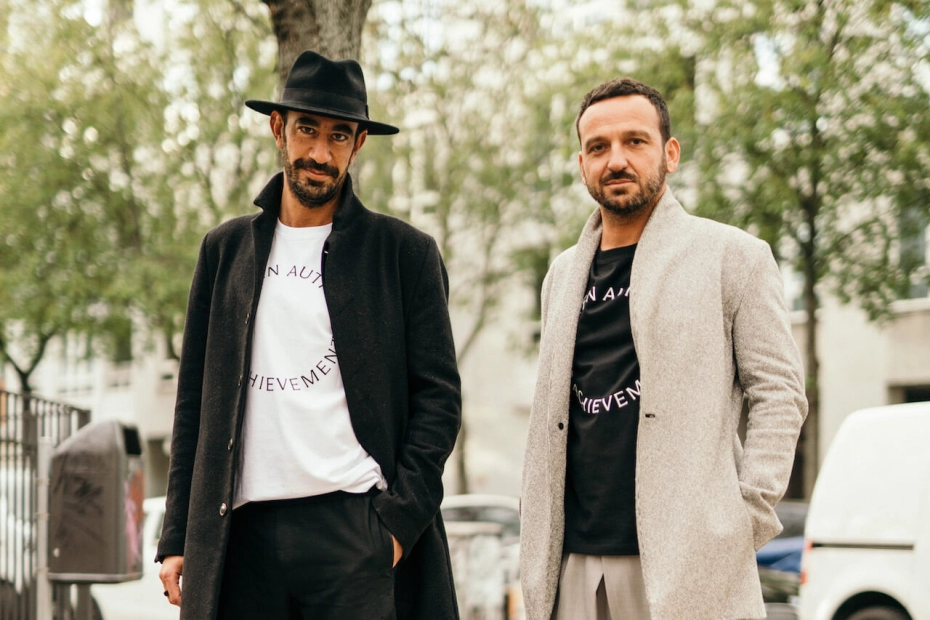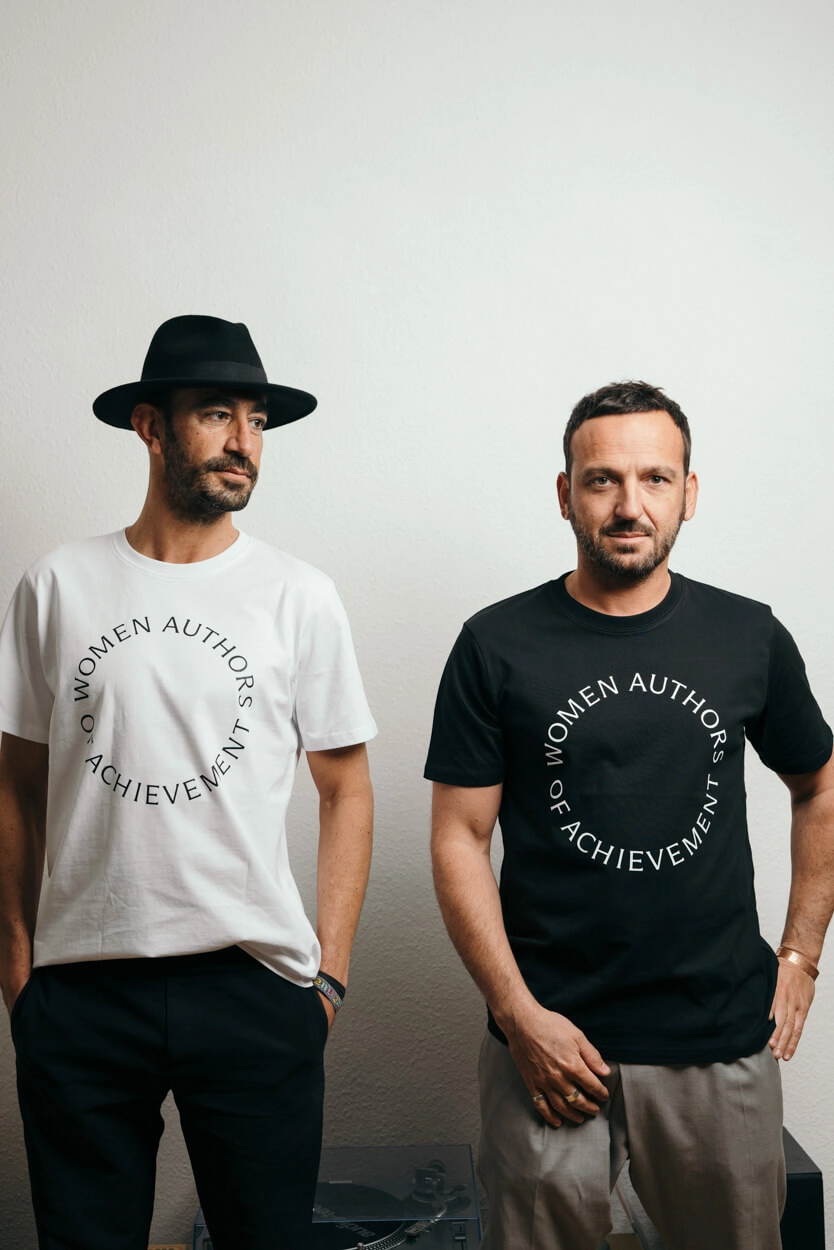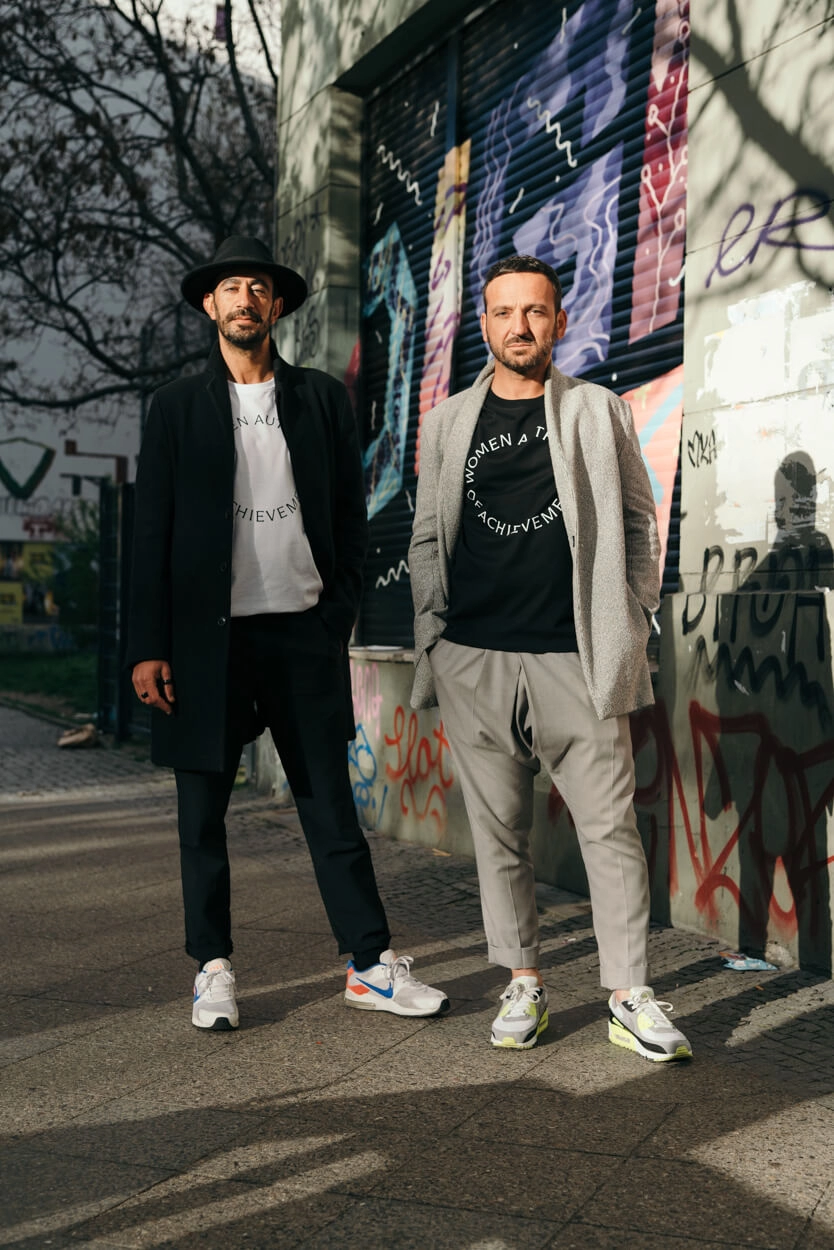Guillaume and Denis
Meet Guillaume and Denis, who moved to Berlin from Paris 15 years ago and united under the alias Dada Disco to play sounds to which are absolutely impossible to stand still. The two musicians have seen the city evolve over the years, but remain inspired by Berlin’s inclusive and accessible nightlife.

How did Berlin influence your creative work?
We came to Berlin for the music and started discovering our own music direction through clubbing. If you ask us, Berlin and Paris are two very different worlds when it comes to the music scene. The nightlife of Berlin is very bustling and creative and as a result of that, it has influenced the music we play. The scene here is much more democratic and inclusive. There is also a touch of secrecy, as it’s very difficult to find some hidden nightlife gems, but regardless of that you are welcomed with open arms wherever you go. The music community is also much more open, which makes it special.
Guys you’ve seen it all! Why is Berlin so special for creatives and musicians?
People continuously go into different directions of music or art once they are here. The vivid nightlife and free spaces are fertile ground for a crossroad of directions and styles - it’s limitless. Also the scene is quite fresh. It only started in the 90’s and because of this there is no established hierarchy in Berlin, which you often find in Paris. Not to mention Berlin is very accessible, you see artists and creatives in the clubs, restaurants, bars, parks. You just need to approach people. Things get started here from the ground. You make friends and soon after that you are creating something together — there is no waiting. This is actually our experience, we met at Bar 25 and started to work together there, easy as that. Back in that time there were not so many venues or people in the Berlin nightlife, so places like Berghain and Panorama Bar were essential to meet like-minded people in the music scene. There was this synergy between people meeting and deciding something from there. All people from back then, now own and work in their own restaurant or bar.


So the local Berlin community means a lot to you?
Definitely! The infamous Bar 25 gave birth to something completely new, which was created by the same group of people. Holzmarkt 25 is more social and cultural with studios for musicians and artists. The venue has a new meaning now. Markthalle Neun is also a great example. It was this abandoned market and people from the neighborhood gathered forces and gave it a new life. Today it’s a hip place where you can find small businesses offering organic products, fruits and vegetables from local farmers and natural wines. It truly revived the whole area of Kreuzberg! KARLOFF Restaurant is around the corner from there and run by the same people for many years, creating an organic community and long-lasting friendships. All those projects and initiatives give Berlin a feeling of being a village, where efforts come from the people who live here. For us especially, earlier we were traveling all over the world and now with the pandemic we were locked in Berlin, which gave us the opportunity to truly reconnect with Berlin and the locals.
Do you have women role models and who are they?
Women were and always are role models for us! In our own music the feminine aspect is always very present — we play for women to feel comfortable, to unwind. In the art and music scene it’s easier to find women role models because the scene is quite progressive. Nina Simone, Kate Bush, Bjorg — all stand for strong identity and are artistic, even with a political note. But if you’re from the academic, science or business background, it’s much harder to find those role models. We tried to think of who we have not thought of that is outside of our scene. We are really proud of Marie Curie, Polish-French scientist and the first woman Nobel Prize winner. We both had her in mind! Also, George Sand, a remarkable French writer and revolutionary of her time.
